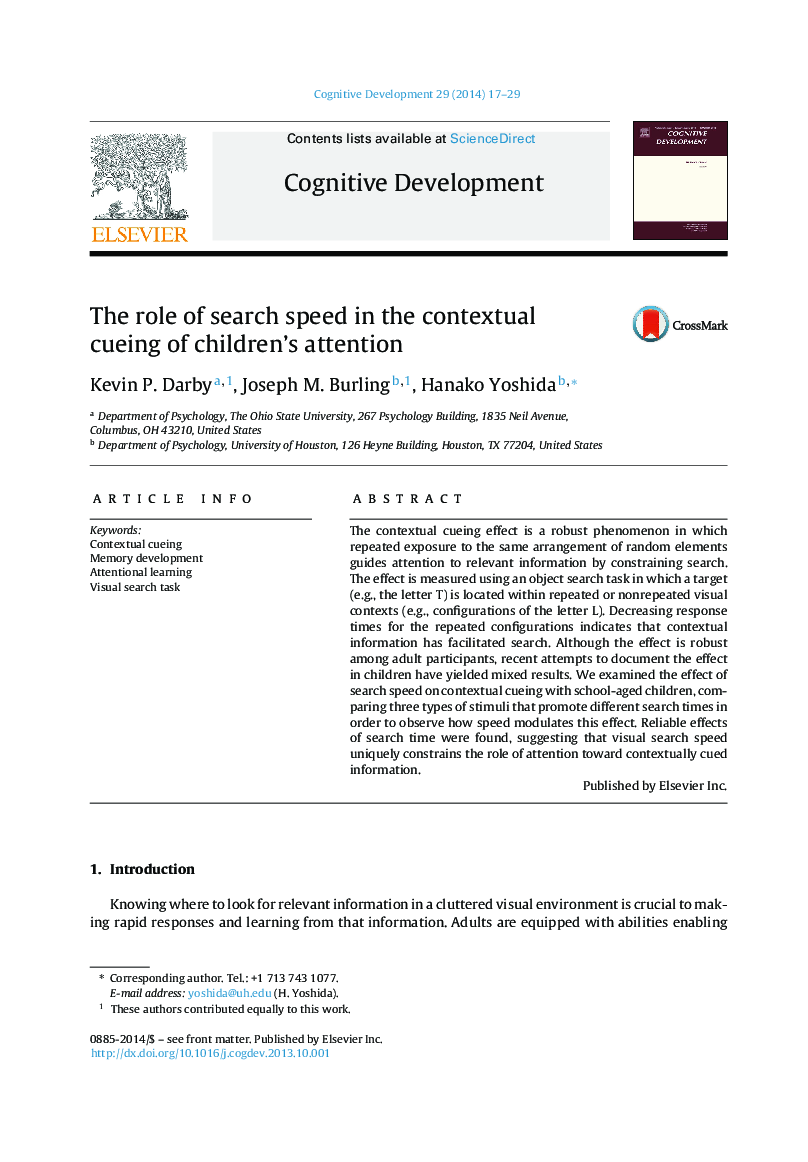| Article ID | Journal | Published Year | Pages | File Type |
|---|---|---|---|---|
| 916504 | Cognitive Development | 2014 | 13 Pages |
•We examine the effect of search speed on contextual cueing in children.•We manipulate speed with three stimulus types.•Cueing effects are not found in all stimulus conditions.•Intermediate search speed leads to larger cueing effects.
The contextual cueing effect is a robust phenomenon in which repeated exposure to the same arrangement of random elements guides attention to relevant information by constraining search. The effect is measured using an object search task in which a target (e.g., the letter T) is located within repeated or nonrepeated visual contexts (e.g., configurations of the letter L). Decreasing response times for the repeated configurations indicates that contextual information has facilitated search. Although the effect is robust among adult participants, recent attempts to document the effect in children have yielded mixed results. We examined the effect of search speed on contextual cueing with school-aged children, comparing three types of stimuli that promote different search times in order to observe how speed modulates this effect. Reliable effects of search time were found, suggesting that visual search speed uniquely constrains the role of attention toward contextually cued information.
